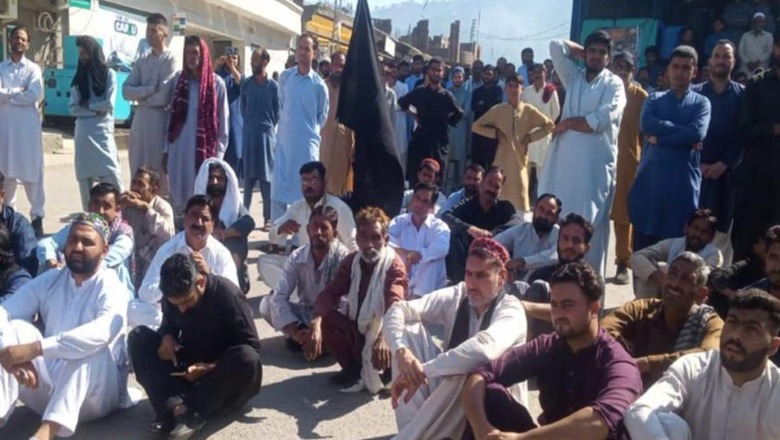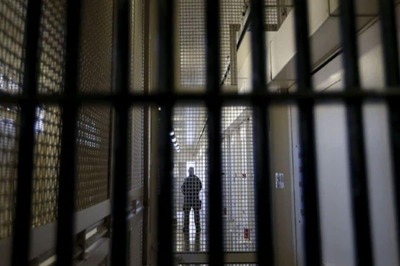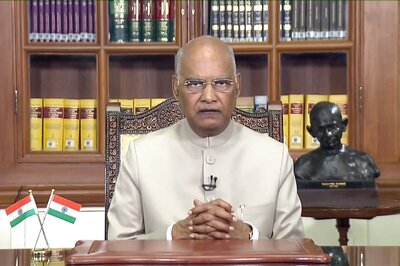
views
On November 7, lawyers, traders and civil society members in the district of Mirpur in Pakistan-occupied Jammu-Kashmir (PoJK) observed a general strike against atrocities committed by the Islamic Republic of Pakistan. The civil disobedience movement kicked off in PoJK after additional taxes were added to the electricity bills on the instructions of the International Monetary Fund (IMF).
Pakistan depends heavily on electricity produced by the hydropower projects dotted all over PoJK. The total requirement of Pakistan remains around 29,000 megawatts of which, at least 5000 megawatts is usurped from PoJK. Pakistan buys electricity from PoJK at the rate of Rs 2.50 ($0.0073) per unit and sells it back to the occupied state at the rate of a whopping Rs 50 ($.17) per unit. Additional fuel charges and taxes in at least 12 categories have made it impossible for the consumers in PoJK to pay their bills. This generated widespread anger that led to sporadic protests and boycotts of electricity payments which later resulted in the creation of the Jammu Kashmir Joint Awami (people’s) Action Committee (JKJAAC).
It is the JKJAAC that has since been coordinating anti-atrocity protests across PoJK, attracting several other social and civic groups to heed the call for protests and strikes. On November 7, the district bar association of Mirpur, in association with the traders’ association, successfully observed a district-wide general strike demanding the cancellation of additional taxes on electricity bills. The ongoing civil disobedience movement has been on for months but without bearing any results. The PoJK government is trying to defeat the movement by luring the leadership of the JKJAAC into negotiations and by using methods of harassment and repression, including arrests and torture of individuals.
On the other hand, it should be realised that what the JKJAAC is demanding of the PoJK government is something they cannot deliver. The immediate cause of the spike in electricity bills is the agreement the Pakistan government has signed with the IMF. The total circular debt of Pakistan’s power and energy sector is over Rs 2.13 trillion. The IMF has linked any further loans with Pakistan’s efforts to shorten the gap. Therefore, Pakistan has increased the per unit charges of electricity and introduced various additional taxes on top.
The movement of civil disobedience in PoJK has been demanding the cancellation of additional taxes. Pakistan’s hands are tied. Hence, the demand of cancelling the taxes cannot be fulfilled. If politics is the art of achieving the possible then such demands can only lead into a blind alley and cause fatigue in the movement. Therefore, it is imperative to replace the ‘cut the taxes’ demand with that of ‘all power to the people’. Up until now, the sole unified representative of the civil disobedience movement seemed to be JKJAAC, which is predominantly made up of small traders, and here lies the problem.
Traders as a social class are traditionally opportunists in nature. It is this opportunism that is now becoming a serious threat to achieving the wider goal of independence and hesitation of JKJAAC in furthering the slogan for the transfer of power to its central committee. The matters of civil disobedience are now being taken up by lawyers, students and other social groups and are indicative of a shift in the nature of the movement, from simply being a movement based on economic demands to bolder demands such as independence from Pakistan and control over the natural resources of PoJK; water being the prime natural resource of the occupied territory.
Addressing the public rally attended by hundreds in Mirpur city on November 7, the president of Mirpur District Bar Association, Kamran Tariq, an advocate, has warned the PoJK government and Pakistan alike that if their charter of demand is not met within 15 days, they will resume their strike and protests will engulf the whole of PoJK. This is an indication that the void being created by JKJAAC’s continuous hesitation in claiming the throne might get filled up by the lawyers and the students.
If that happens, then more social groups such as the associations of pensioners, ad hoc employees, transporters and others might follow suit by joining broader sections of society and help to transform a mere chatty civil disobedience movement into a revolutionary movement for independence.
Dr Amjad Ayub Mirza is an author and a human rights activist from Mirpur in PoJK. He currently lives in exile in the UK. Views expressed in the above piece are personal and solely that of the author. They do not necessarily reflect News18’s views.




















Comments
0 comment